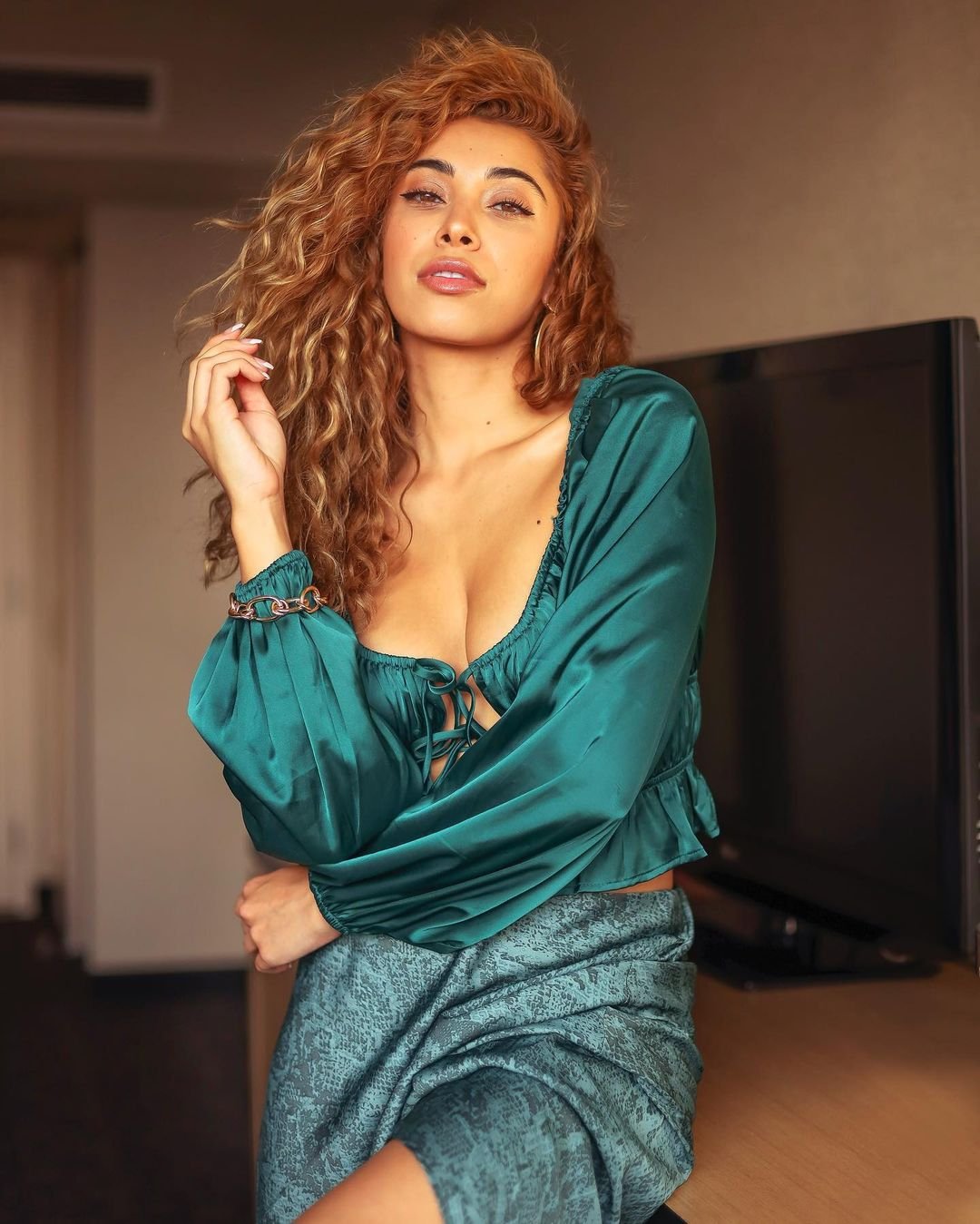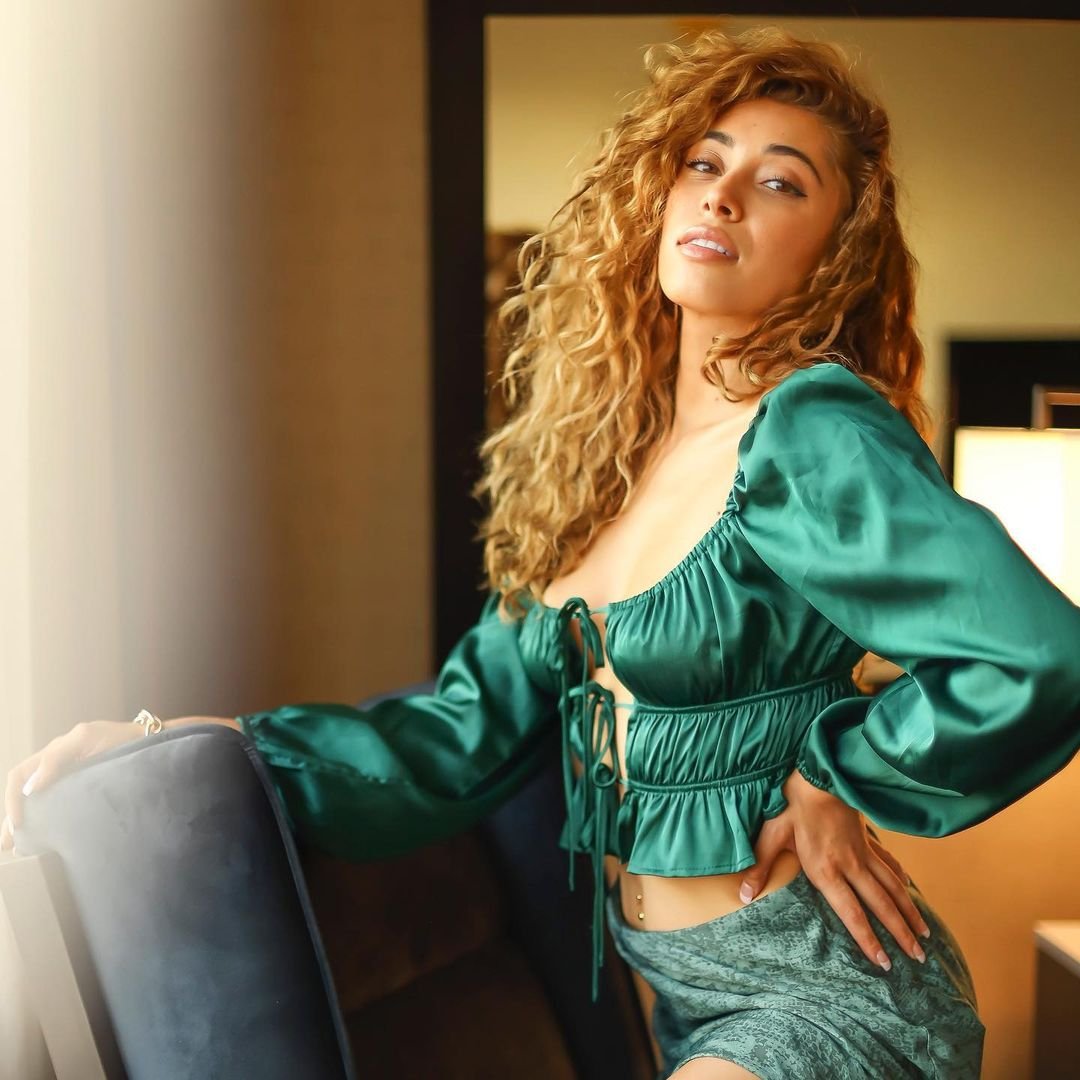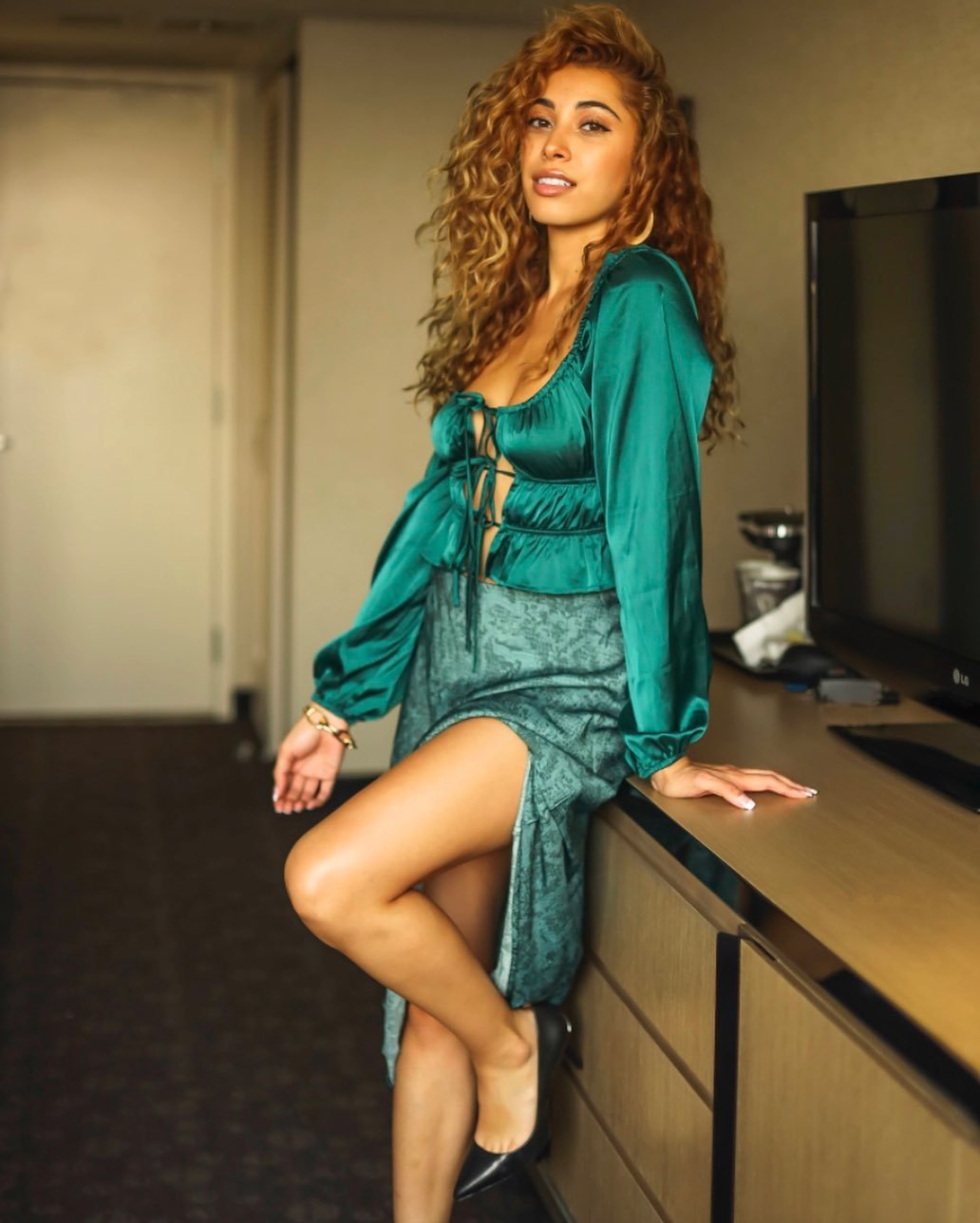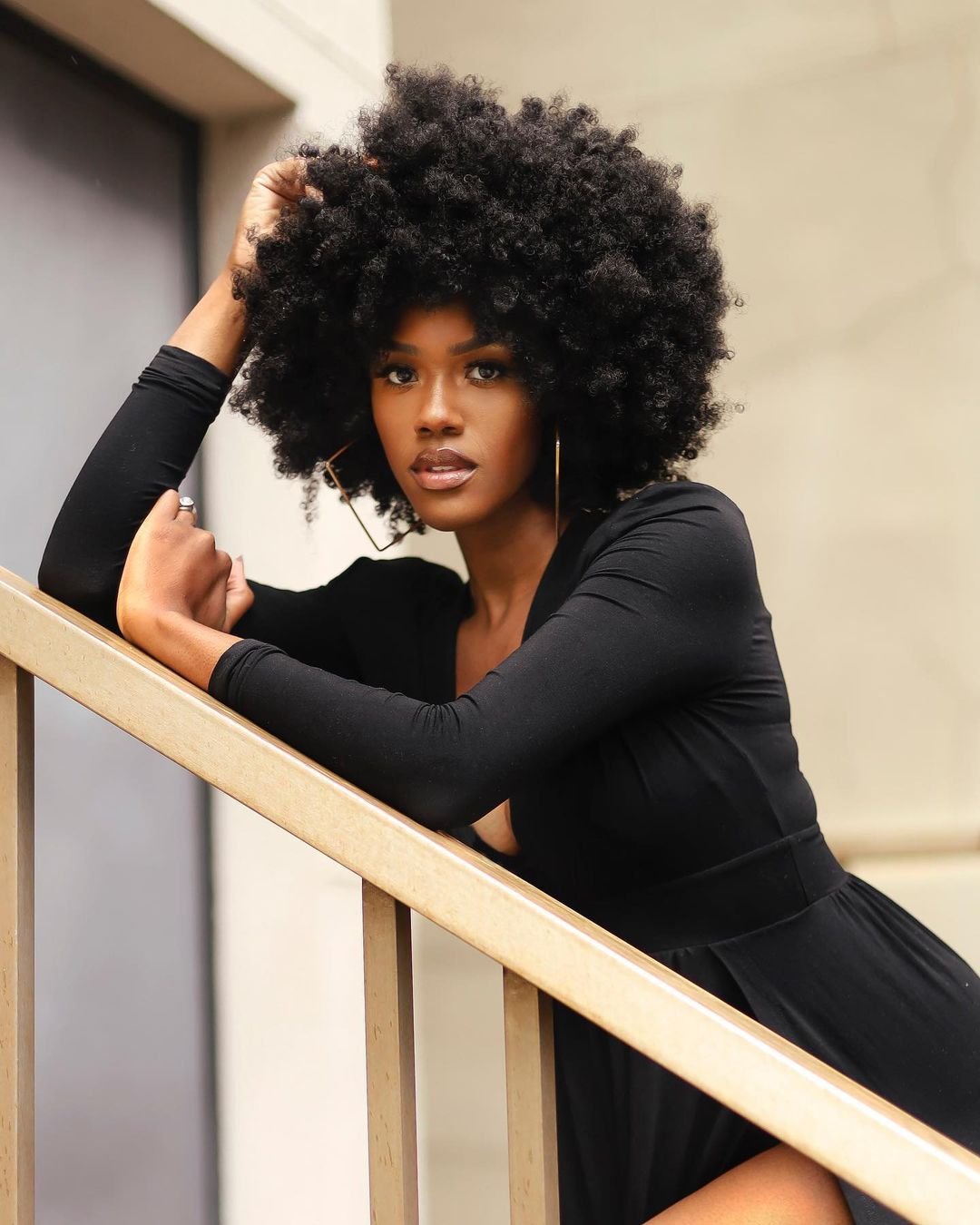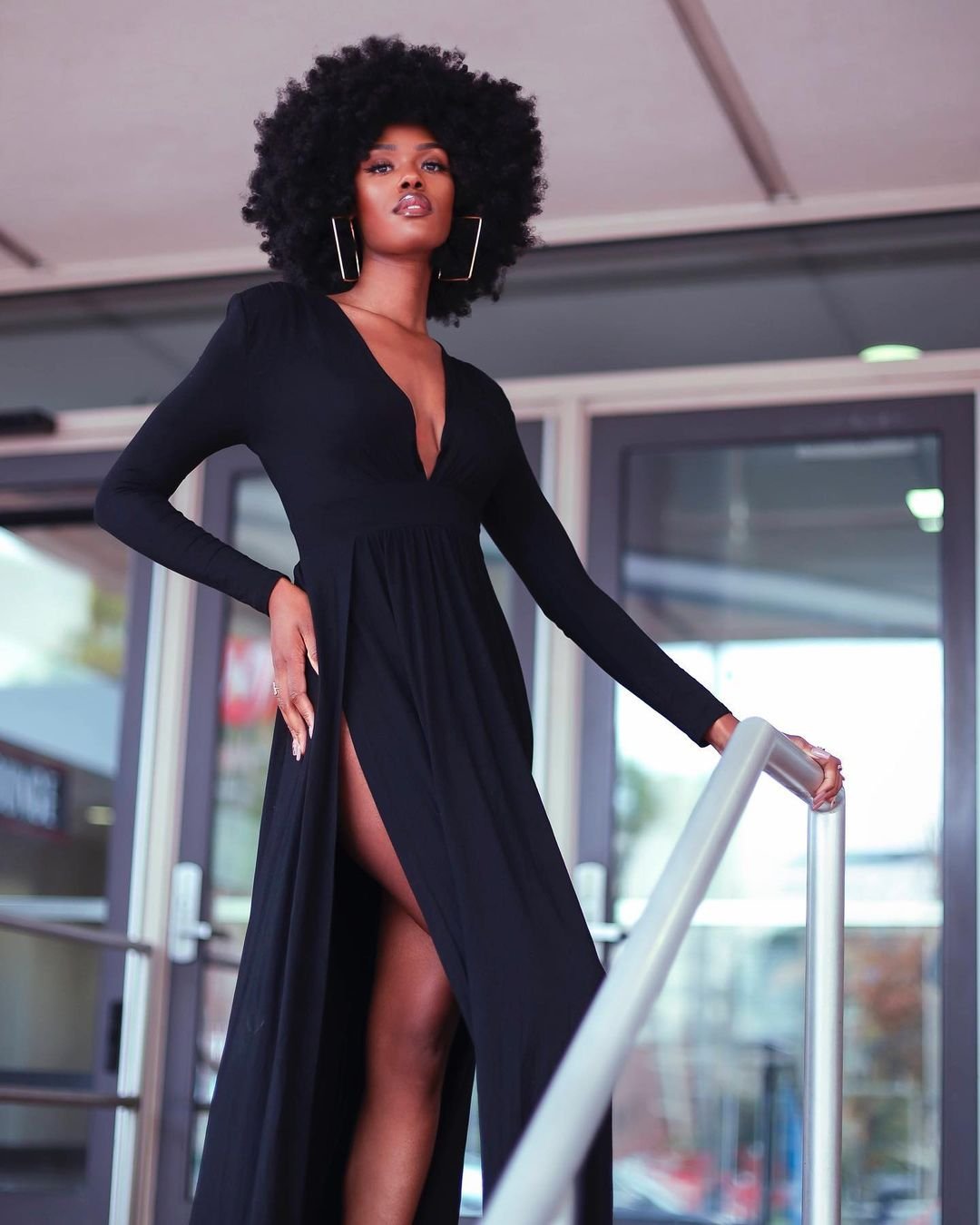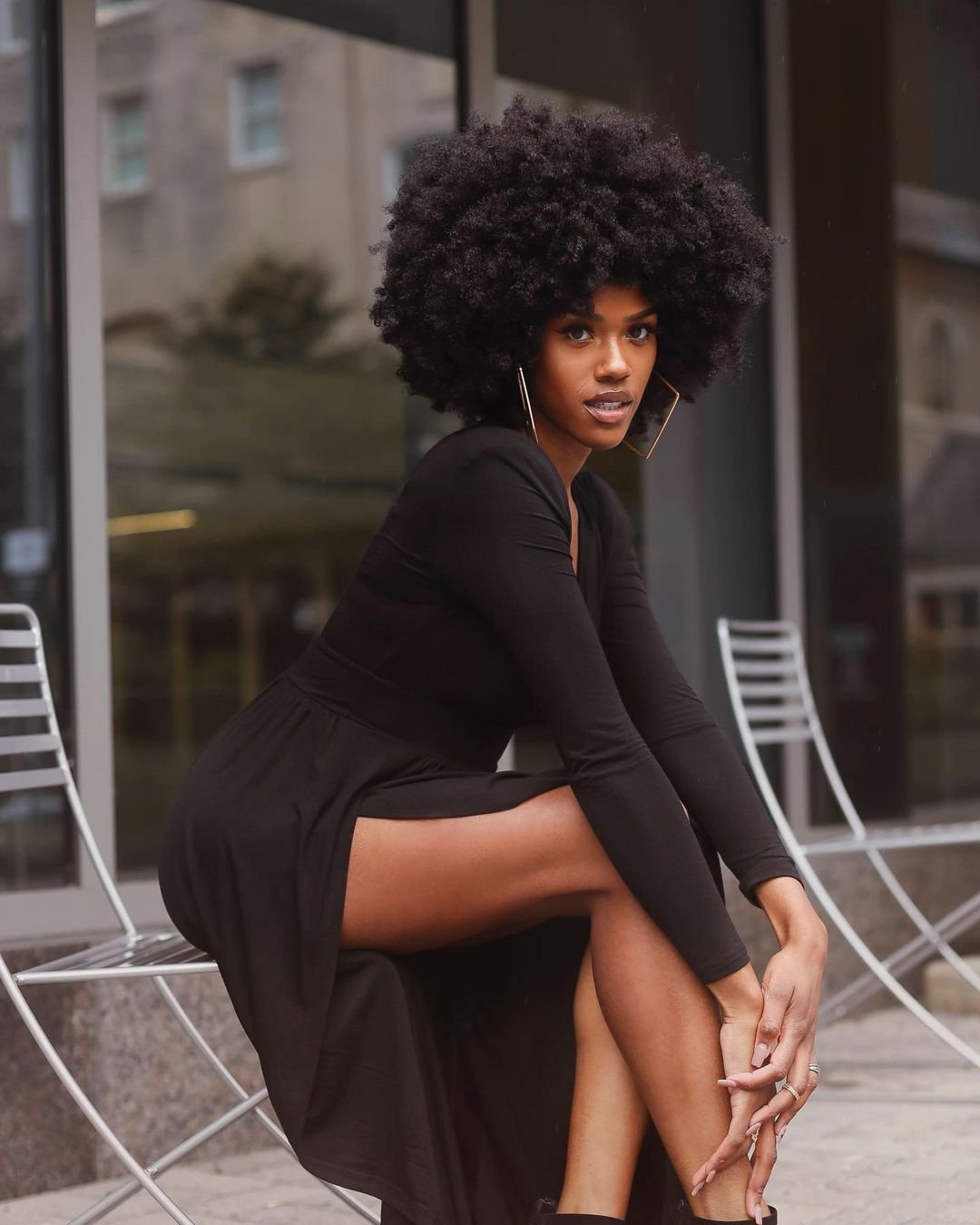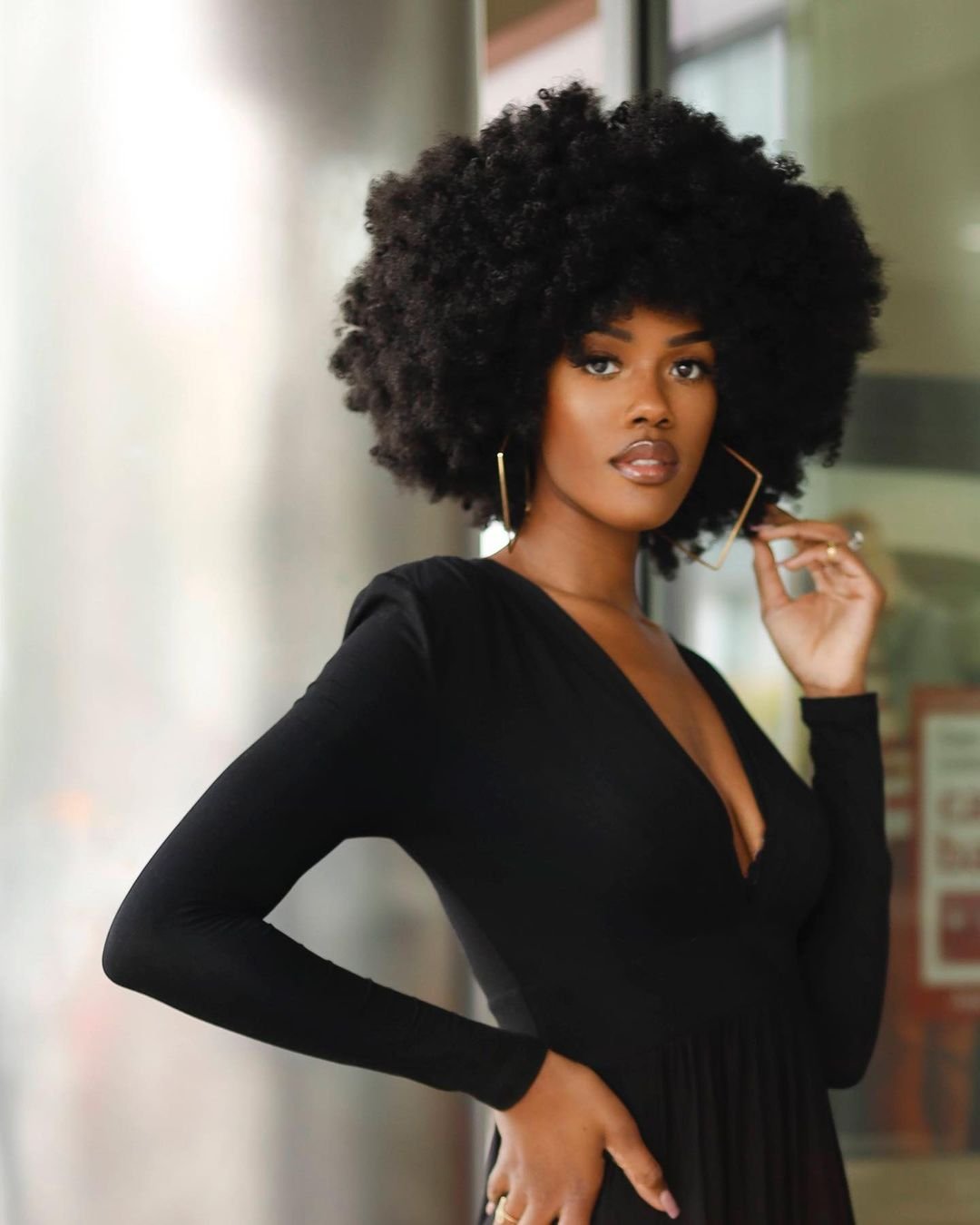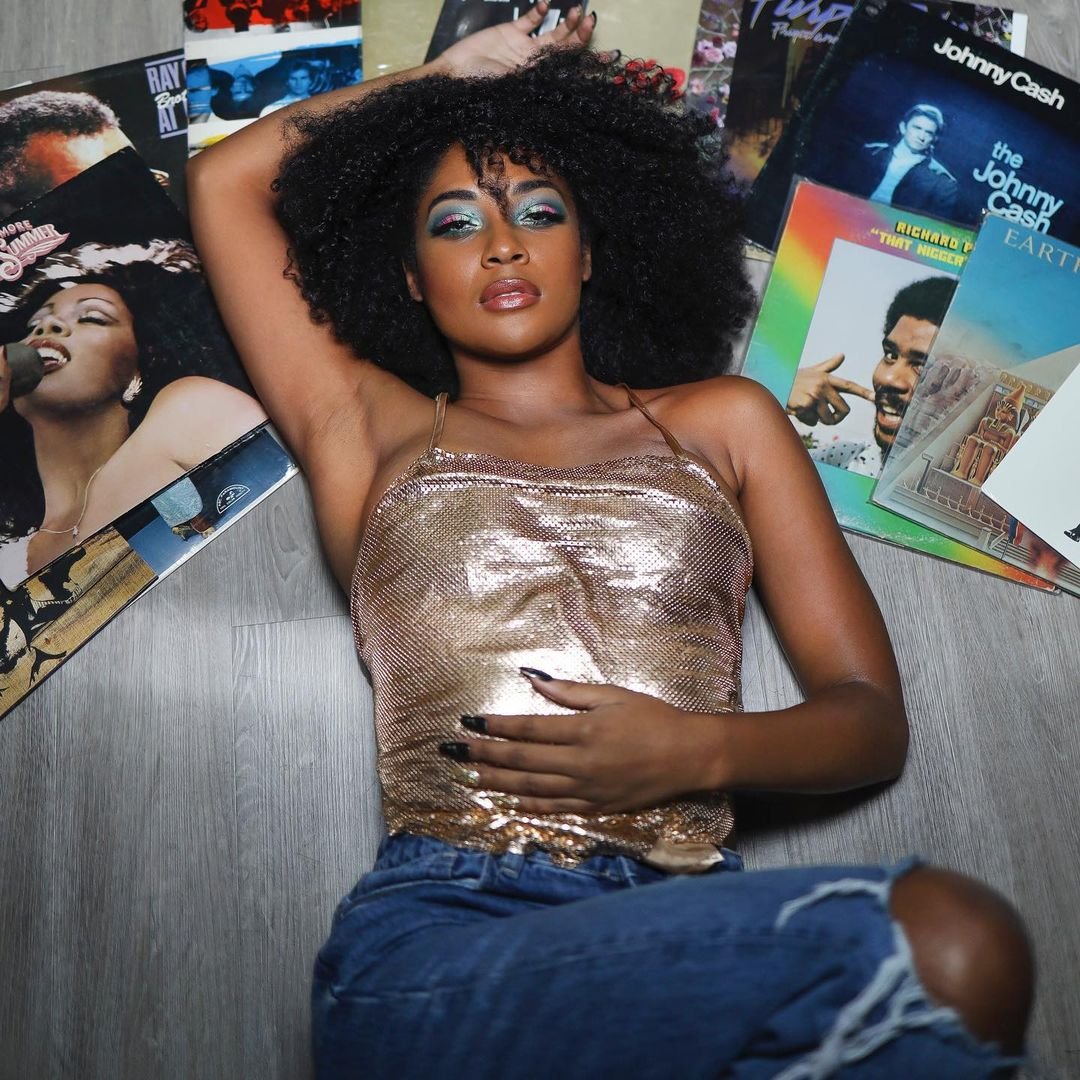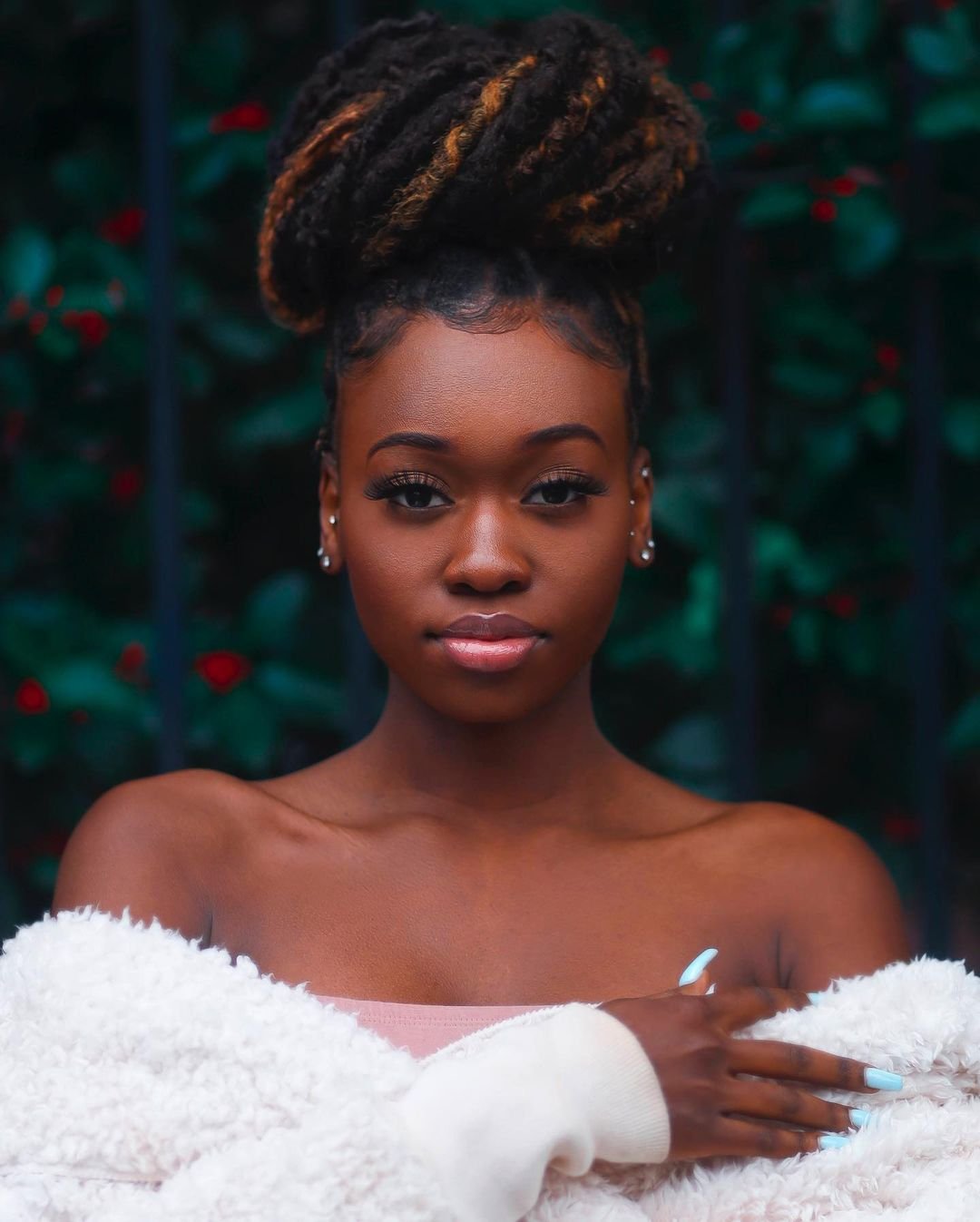Julien John Charles
The art of hustle is alive and well with portrait photographer Julien John Charlies. On any given day, you might find him scouting out locations in Philadelphia, hopping on a flight to Georgia, Florida, or California, or simply rocketing around to different shoots in New Jersey in his blacked-out Ford Mustang. He is a man on a mission, humble to a fault but simultaneously booking gigs and churning out edits at an extraordinary breakneck pace.
“I love my portraits, ‘cause I love the interaction,” he says. “You meet so many different characters, so many different personalities, bro. I feel like photography is just problem solving when you’re working with different people.”
A deep vein of altruism and unselfishness runs through his work, a mentality that perhaps a rising tide truly does lift all ships. Julien mentions “model friends” often, but without a hint of self-importance or pretension. It’s an attitude that says, plainly, ‘We’re a team. We need each other. Let’s work together … and get paid.’
In between the near-constant shoots, he somehow also finds time to live life. Not infrequently, he’ll throw a skit or behind-the-scenes reel into the mix. And in an age of perfectly curated feeds (where the photographer behind the lens often becomes an enigma), a single one of his videos (or self-portraits) is lighthearted, genuine, and self-aware enough to break the ice.
That he returns, always, to Central New Jersey after stints in LA and the south reveals a lot about the kind of person Julien is. He can be found on Nassau Street, with the perfect amount of light, taking advantage of the best of historic downtown, the red cobblestone streets and Princeton University’s campus as a backdrop, looking for symmetry and leading lines.
For the full interview, where we discuss the lost art of iPod photography, the life and times of Caribbean travel influencers, and why sometimes you really just have to post yourself, read on.
Tell me about the @Julienson2 handle. Where does that come from?
It’s a funny story — I was born and raised in [the Caribbean island country] Dominica for about half my life, and people [over there] just called me ‘Son.’ When I came to America — I dunno if it's still happening now — but back then in New York they they called everybody ‘son.’ So like, Jersey, New York, Dominica … everywhere they just kept calling me ‘Son.’ I was like, “That’s interesting.” So I just went by ‘Son’ as part of my business name, basically.
Talk to me about how you got into photography. What was that journey like?
Back in the day, I would just save big wallpapers on my phone. Guy riding a motorbike, wallpaper of a mountain, animals, cool looking people, action heroes … anything. I bought an iPod [that had a camera], and my friends and family would always be like, “What type of camera you got? Nikon? Cannon?” I'm like, ‘Bro, it's an iPod!”
Then I got a GoPro and went on vacation back in Dominica, just taking pictures of the beach, the water … it's already beautiful over there, bro. Some locations, you don't have to do too much — you just take one picture and it's epic. So I’m takin’ pictures with the GoPro, editing ‘em, raise the vibrancy a little bit, give you a little color pop, and again, everybody's like, “What type of camera is that?” I'm like, “GoPro and iPod.” I got a better iPhone later on and discovered portrait mode, then immediately asked a friend of mine, like, “Le, you know about portrait mode? Let's go take some pictures.” So she was my first model. Then I got my camera (about $400, nothing major) and since I had my apartment, I was thinking, ‘Yo, I need to make extra money.’ That was how I started pursuing photography.
Was there a specific turning point for you in photography going from a hobby to a business?
The turning point was … I needed money. [Laughs] I asked my cousin, “Should I start a photography business?” Prayed on it, asked a couple more people what they thought. All my cousin told me was, ‘Bro, I've seen your work.’ That was the confirmation. I thought, “I guess it's good enough.” So that was it.
Were there any initial hurdles in getting started with that?
For anybody who provides a service, the hardest part is just asking for money. You don't want to overcharge them, but you also actually want to make a profit, so you don't want to undercharge. That was the hardest part for me. That, and also figuring out how to use the camera in different lighting situations. A buddy of mine asked me to [shoot] a party for him early on … and it was pitch black and I'd never done a party before. The lighting was terrible, and that’s how my pictures turned out, ‘cause I hadn’t figured out how to use a flash. That's why I really learned how to edit.
I feel like photography is just problem solving.
Every situation, you need to figure out how you can make it work every single time.
How did you arrive at the style of portraits and modeling photography that you specialize in today?
I used to do some landscape … I feel like every photographer did landscape when they just get started. [Laughs] That's the easiest subject. You don't have to schedule anything or anybody, or ask any one of your friends, “Hey you wanna set up a photo shoot and then go watch a struggle with the camera for like two hours?”
These days I love my portraits, ‘cause I love the interaction. The interaction with people is just amazing, bro. You meet so many different characters, so many different personalities, bro. I guess it's like a buffet. And it's always fun. I feel like I had maybe one bad experience at a photo shoot for the client. Out of hundreds. Every time things are good. I feel like photography is just problem solving when you’re working with different people.
What do you mean by ‘problem solving?’
You have a concept, or a plan. Let’s say they want to do a maternity shoot. The way I approach it is like, “Where's my light source?” I look at the windows. I might have a flash, and then I gotta figure out which angle to put the flash at, and where my other source of light is coming from, then figure out the shadows. You might have some contrasting colors on the wall behind them. You gotta face the camera a certain way to not get that color. The contrasting color might be complimentary to the personal subject, so you then you’d have to implement that into the pictures. Every situation, you need to figure out how you can make it work every single time.
What’s the biggest lesson you’ve learned about people, specifically, while working in the photography business?
You never know what people will like. You might come out of a shoot and pick 10 of the absolute best shots, and then the client chooses their pictures … and they might choose 2 out of the 10 that you like the best. Even with models, I’ll be like, “There's a lot of leading lines, and the background is perfectly symmetrical with the model’s body, and the pose is just right…” But the client’s perspective is usually so different.
Anybody I work
with, I'm not just trying to work
with them and be done with it … I'm trying to invest
into their life.
Are there any misconceptions about working with models, or about working as a photographer in general?
I feel like a misconception people have is … they think you get intimate with a lot of models. [Laughs] And there are opportunities to go past professional, but honestly, most photographers I know don't mess with models.
For me, personally, anybody that I work with, I'm not just trying to work with them and be done with it — I'm trying to invest into their life. If I see a model who's struggling — even one who’s not struggling — I'm trying to give advice. Track your business, get an EIN pin so you can write stuff off on your taxes. (That’s the code that lets the IRS know that you perform services in the state.) So for models, they buy a lot of clothes for photo shoots, lot of makeup stuff … that's just money you spent out of pocket. So I'm like, “Make a business account, start a business!” You can separate your business from your personal stuff. Again, I’m trying to invest, not just in models, but in anybody I work with. I want to build a relationship with 'em where I leave them better off than they were before they met me. And if anybody would do that for me, I would appreciate it.
Another misconception would be from me, looking in before I started doing photography. I used to be thinking photographers are lazy. One of my friends got married, and I'm seeing the photographers working, thinking, “This is just easy, bro. All he’s gotta do is take pictures and upload ‘em!” Until I started doing it. It’s not easy. ‘Cause you stay up all night. You gotta build relationships with people. There's never a day off. I'm always driving, and I’m always staying up late retouching photos. Everyone forgets about those hours of retouching. They think it's just: take the pictures, upload ‘em, and get paid.
You and I have talked a lot about the allure of ‘travel photography.’ Ie. photographers who travel to luxurious locations, hotels, etc. and are paid to promote travel agencies, etc. But let’s get real – does that sh*t even exist?
I did meet one. I was on vacation in Dominica and I did a shoot at the hotel, and there was this one guy who came up to the pool with a drone. Imagine this location: You look to your left, there's a mountain, then there's an ocean. You look to your right, there’s this beautiful resort and a city, and then the ocean again. So he’s just hanging out right next to the ocean, flying a drone for 10 minutes or so, then hops in the pool with a GoPro to walk around and take videos. Then he just gets drinks and chills out in the pool. I'm like, “… Hey yo!” So we start talking, and he told me he was working for a magazine. “They fly me out to different locations in the Caribbean and I take pictures and videos and get paid for it.” And he stays at the hotels for free. That’s beautiful. He did tell me it’s tough if you have a family going, ‘cause they don’t see you much. But if you don’t have a family … that’s a dream job.
There’s a lot of messaging right now pushing for creatives to build pristine brands on social media. It seems like a whole generation of photographers is just curating a constant stream of nothing but their professional work — you have no idea who they are, or even what they look like. One thing I like about your feed is that you’re not afraid to get lighthearted and put some funny clips in the mix. It makes you a lot more approachable, and more friendly in comparison, because you’re actually showing yourself. How did you develop that balance?
I used to post myself a lot, all types of dumb videos. One of my friends actually told me I was TikTok before TikTok. [Laughs] But then I stopped.
There’s a photographer named Jessica Whitaker, and [I saw a video where she was talking about how] if you want more clients, you gotta let 'em know what you look like. You gotta actually put yourself on social media. Then I started to notice that that was the reason I like certain photographers. The personality of this girl called Jessica Kobeissi, looking through her YouTube videos — she's pretty funny, she’s chill, down to earth, pretty nice. So now I'm always telling my friends, “We gotta show a personality on YouTube, on social media, or somewhere.” So people know that you're nice to work with! Even with some models, they might look so stuck up until you get to know them.
Sometimes I just feel creative and I don't have any models to work with. So I'm like, I'm gonna just model myself and do stuff portrait too, if I feel creative. I'm gonna just use myself as a canvas and just try to put my perspective into reality. It is intentional.
There was one time I was between Georgia and LA doing a bunch of client shoots for like a month straight. I was making a lot of money, but I was burnt out. Honestly I feel like it's easy to get burnt out doing paid work. Whatever your passion is when you start working that field, it’s easy to kind of … not like it as much. It’s almost like you have to intentionally try to do something creative, even with clients. I might try to help them at least get some creative shots during their serious photoshoot. I like to mix 'em together, professional work as well as just having clients be goofy. Life is too short to not have fun.
Life is too short to not have fun.
What is your favorite city to shoot in, and why?
Definitely LA, bro. I love Georgia more than LA, ‘cause Georgia is super relaxing and chill, but LA is like any artist's dream. Looking around, you just see stuff that's easy to work with. The lighting, the sunset, the colors, the architecture, the lines, the buildings. It makes it easy.
Georgia, LA, and New York are all creative places, and there are a lot of artists out there. Especially in Georgia. Most of my clients live in Georgia but they travel to Atlanta for the shoots. But every place has has good things about it. You go to North Jersey, there are a lot of nice spots. Philly as a whole is nice ‘cause it’s old and rustic. Georgia you gotta go to certain locations to get that dream shot, versus in LA … anywhere would work with that orange lighting. It’s always golden in LA. New York is also really easy to work with, ‘cause of the colors, buildings, structures, and just the whole New York vibe. Hardcore business, coffee, streets, yellow taxi cabs, Times Square, tons of colors. NYC and LA are the easiest places to shoot in the US.
It’s almost taboo for people working in photography and/or content-creation to have other jobs.You see perfectly curated Instagram feeds and it doesn’t give you a full picture of who these individuals are. Something I admire about you is that you work for Home Depot as well. Could you speak a little bit about the realities of working in this business? Do you feel more people than not are ‘fronting’ in terms of how successful their internet-based business is?
Yes, bro. Especially models. I feel like the creative industry is just fake it ‘till you make it. But don't fake it to the point where yo get stuck up about it. [Laughs] Most models don't get paid for their work, and a lot of photographers probably have a second job, but they both want to make it look like they’re getting all their money from one thing. It’s hard to do it. You could sign to an agency, or a small company, and still your own creative work on the side, but it’s hard to make it flow together. It’s not easy, being an influencer. Most of them are broke, living paycheck to paycheck, or working for some retail company part time.
Well, you’re definitely hustling. I know you’re always racing around the tri-state area like me.
Nah, I feel like I'm mostly based Philly now, but most of my shoots are in North Jersey. For example, I have a shoot tomorrow afternoon in Philly, then another shoot in this area [around Central Jersey}, then this guy wants to book me for Hoboken on Saturday. In a Mustang, bro. And with a muscle car, you burn so much gas, man. It's rough. The guy at the gas station sees me about three times a week. [Laughs]
What are the good spots around Philadelphia?
I have two or three locations around Penn's Landing in Philly. There's Race Street Pier, Penn's Landing, and then Old City, Philadelphia. All three are about 10 minutes walking distance from each other. It’s like a trifecta for me, plus the the Museum of Art there too. I just shoot outside of it. There's a little pond in the back there. There's a shoot I did with this one girl, and the lighting was just amazing, bro. I didn't think about that location like that until that day.
What’s one thing you’ve learned about the media/photography/content creation that you wish you could tell your younger self?
That's a good question. Five years ago, I would pray. But also … I’d have told myself to learn how to edit better, bro. There was this one video that I saw when I was researching photography — it was actually a video about creating covers for video games. Watching that video, I realized I didn't know anything about photography. I came into it thinking like, “I'm pretty good, I know how to take nice pictures.” And then I saw this video about where to place the subject on the cover video game, what type of color to put in the lighting, symmetry, and leading lines." I'm like, “I'm doing all this wrong.” When I really learned how to dodge and burn, that’s when people really started telling me they loved my edits.

